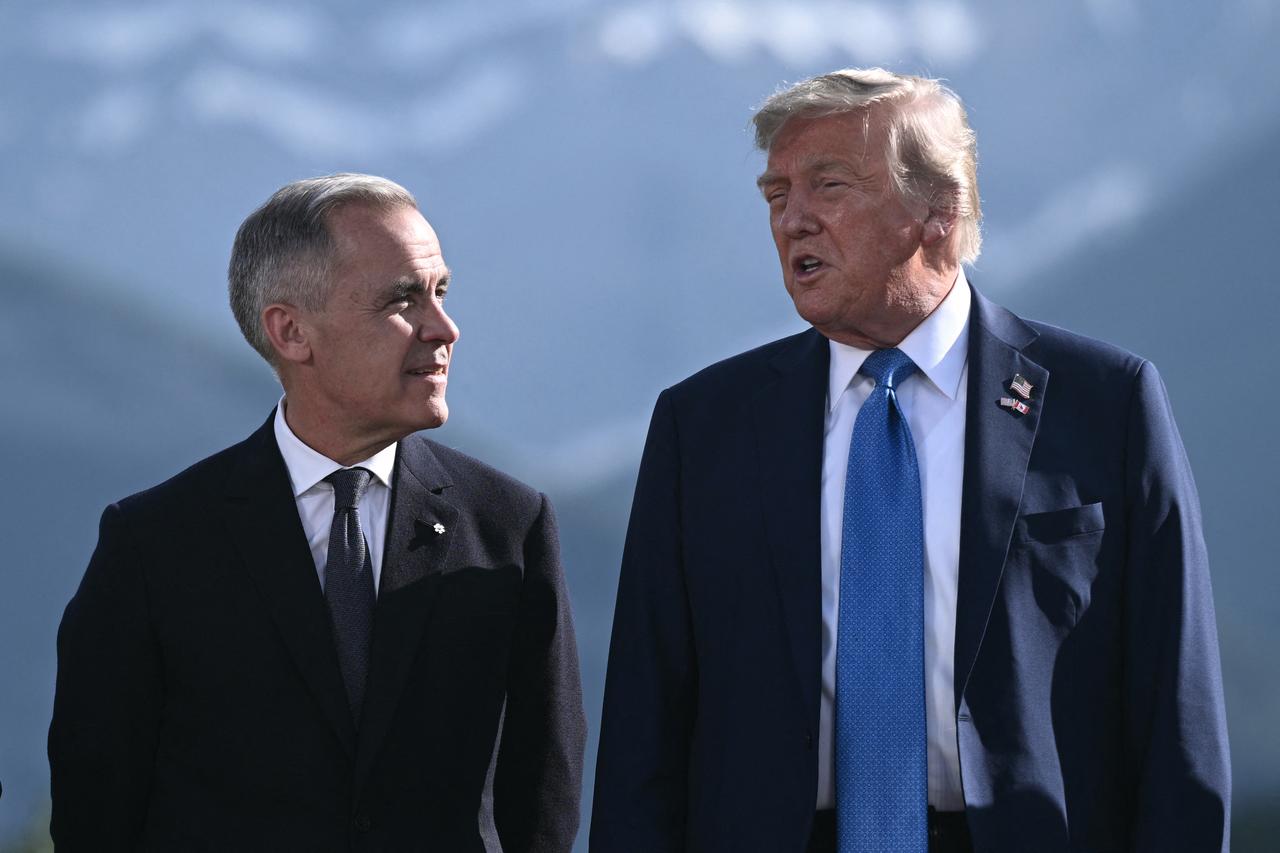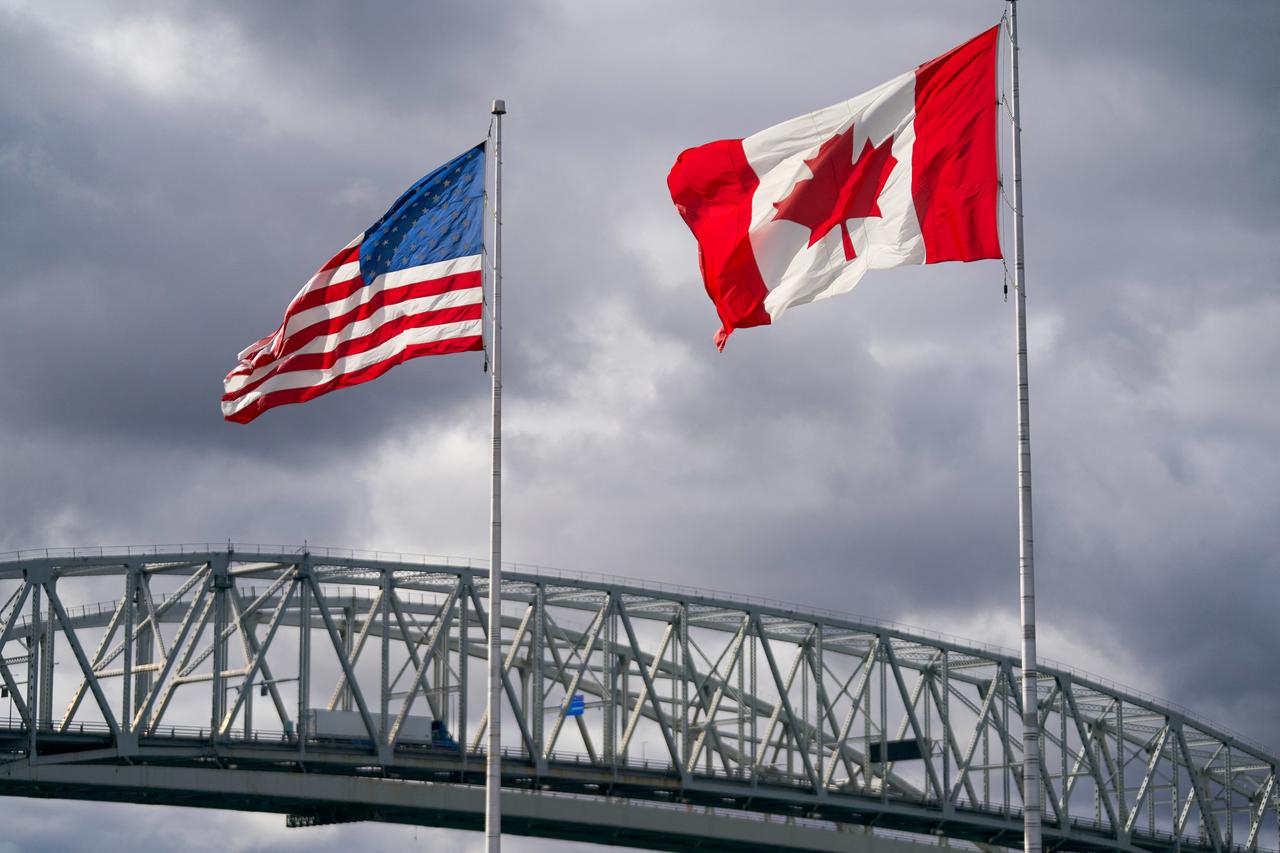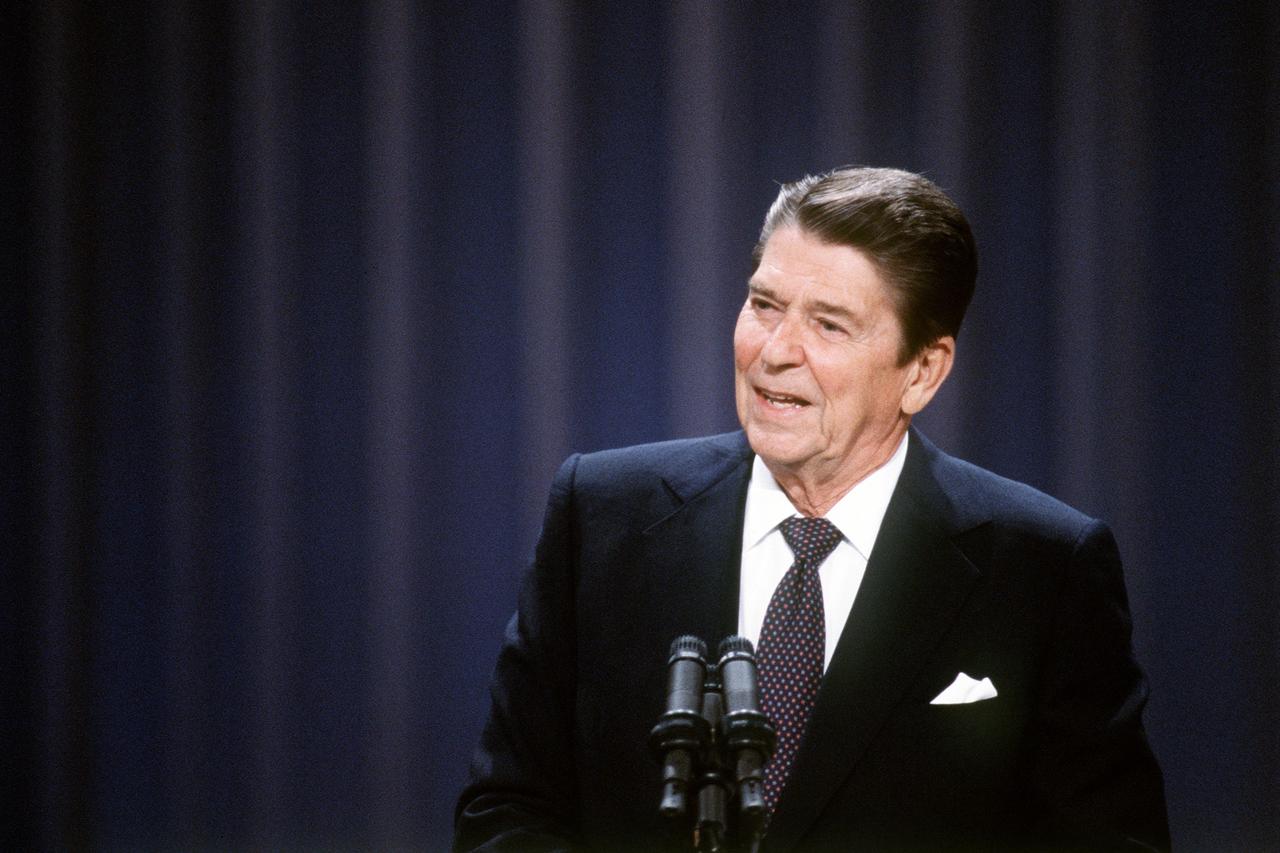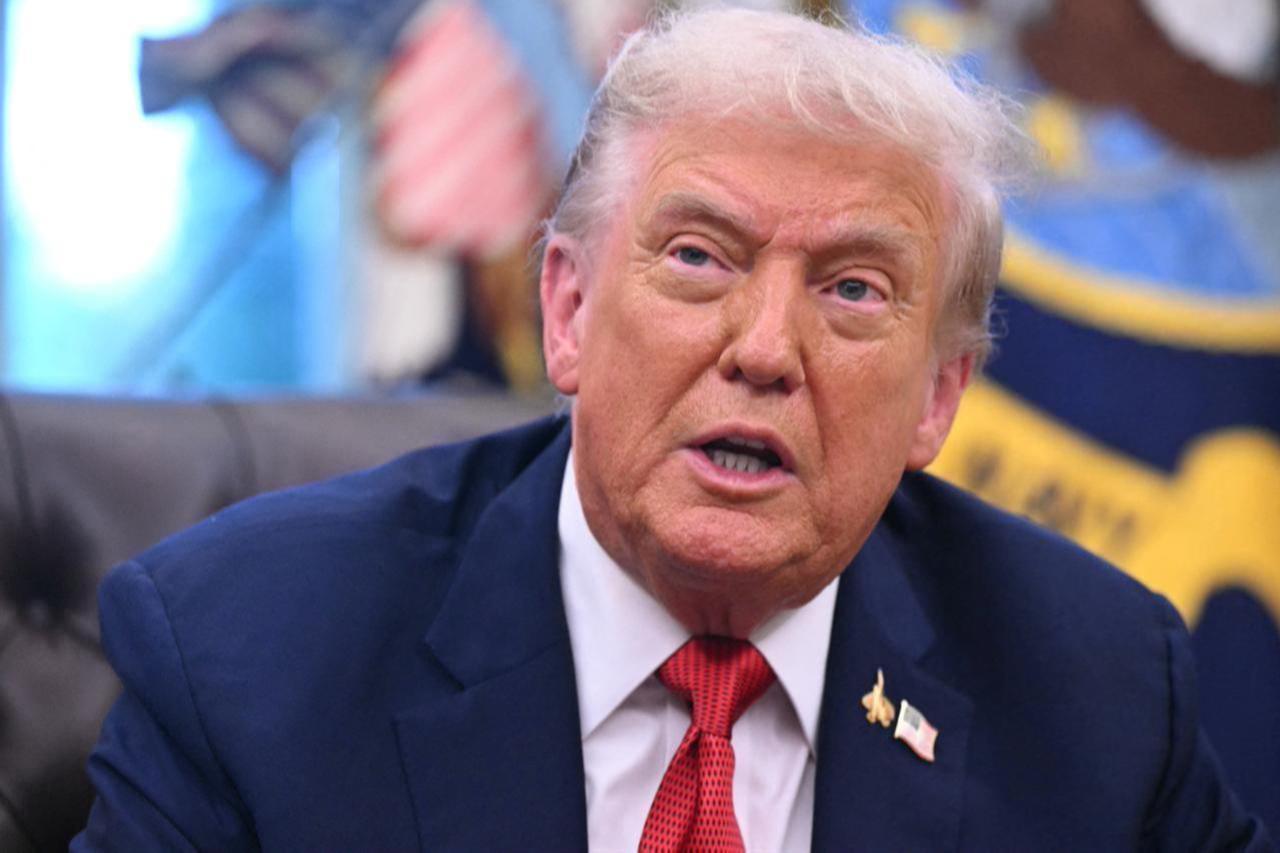
U.S. President Donald Trump announced Saturday he would raise tariffs on Canada by an additional 10% "above what they're paying now," intensifying a trade conflict that erupted earlier this week over a Canadian television advertisement.
The president disclosed the tariff increase in a post on Truth Social, citing an ad campaign by Ontario's provincial government that featured audio of former President Ronald Reagan warning against protectionist trade policies.

The commercial included excerpts from Reagan's April 25, 1987 radio address, in which he said: "Over the long run such trade barriers hurt every American worker and consumer."
Trump withdrew from trade negotiations with Canada on Thursday, calling the ad "fake" and accusing Ottawa of fraud. "CANADA CHEATED AND GOT CAUGHT!!!" he wrote on Truth Social Friday, claiming the ad falsely suggested Reagan opposed tariffs when "actually he LOVED TARIFFS FOR OUR COUNTRY, AND ITS NATIONAL SECURITY."
The Ronald Reagan Presidential Foundation and Institute criticized the advertisement Thursday night, posting on X that it "misrepresents the 'Presidential Radio Address to the Nation on Free and Fair Trade' dated April 25, 1987."

While Trump called the ad fake, Reagan's words were authentic. The former president made the address one week after imposing tariffs on Japanese semiconductors, attempting to explain a decision that appeared to contradict his reputation as a free trader.
Reagan did not, in fact, love tariffs. He frequently criticized government policies that interfered with free commerce and spent much of the 1987 radio address making the case against tariffs.
"High tariffs inevitably lead to retaliation by foreign countries and the triggering of fierce trade wars," he said. "The result is more and more tariffs, higher and higher trade barriers, and less and less competition. So, soon, because of the prices made artificially high by tariffs that subsidize inefficiency and poor management, people stop buying. Then the worst happens: Markets shrink and collapse; businesses and industries shut down; and millions of people lose their jobs."
However, Reagan's policies proved more complicated than his rhetoric. Beyond taxing Japanese semiconductors, Reagan imposed levies on heavy motorcycles from Japan to protect Harley-Davidson. He also pressured Japanese automakers into accepting "voluntary" limitations on their exports to the United States, ultimately encouraging them to establish factories in the American Midwest and South.
Robert Lighthizer, a Reagan trade official who served as Trump's top trade negotiator from 2017 through 2021, wrote in his 2023 memoir that "President Reagan distinguished between free trade in theory and free trade in practice."
In 1988, an analyst at the libertarian Cato Institute even declared Reagan "the most protectionist president since Herbert Hoover, the heavyweight champion of protectionists."

Discussing his semiconductor tariffs in the April 1987 radio address, Reagan said he was forced to impose them because the Japanese were not living up to a trade agreement and that "such tariffs or trade barriers and restrictions of any kind are steps that I am loath to take."
Trump, by contrast, has shown no such hesitation. He argues that tariffs can protect American industry, draw manufacturing back to the United States and raise money for the Treasury. Since returning to the White House in January, he has imposed double-digit tariffs on almost every country and targeted specific products including autos, steel and pharmaceuticals.
The average effective U.S. tariff rate has risen from around 2.5% at the start of 2025 to 18%, the highest since 1934, according to the Budget Lab at Yale University.
Trump's enthusiastic use of import taxes — he has proudly called himself "Tariff Man" — has drawn challenges from businesses and states charging that he overstepped his authority. The Constitution gives Congress the power to levy taxes, including tariffs, though lawmakers have gradually ceded considerable authority over trade policy to the White House. The Supreme Court is set to hear arguments in the case early next month.
Trump claimed Thursday that the Canadian ad was intended "to interfere with the decision of the U.S. Supreme Court, and other courts."
Canadian Prime Minister Mark Carney said Friday that Canada remained prepared to resume trade discussions with the United States. Neither the White House, the U.S. Commerce Department, nor Carney's office immediately responded to requests for comment Saturday.